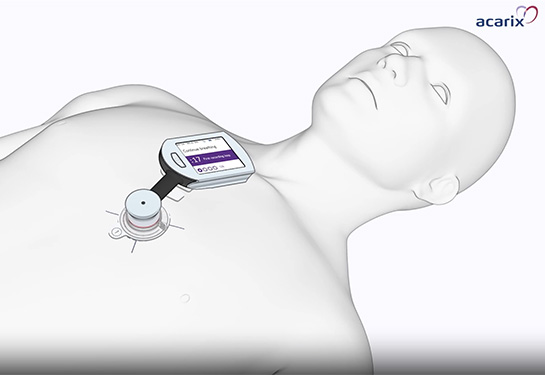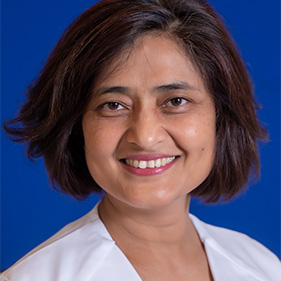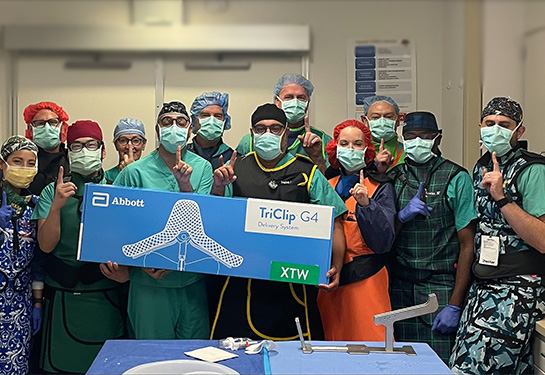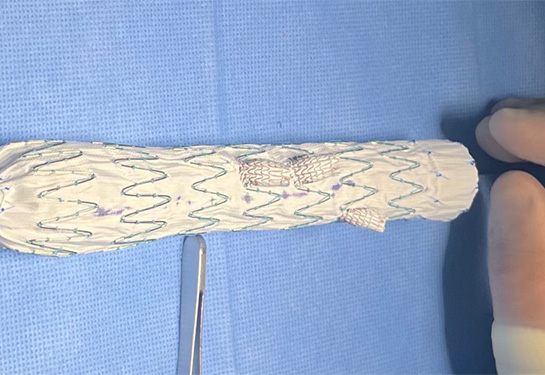Clinical trial evaluates new technology for rapid assessment of heart disease
UC Davis Health is first in nation to collect data from state-of-the-art diagnostic system
A new clinical trial at UC Davis Health will evaluate a novel technology to assess adult patients for non-obstructive Coronary Artery Disease (CAD) in the emergency department and cardiology clinic.
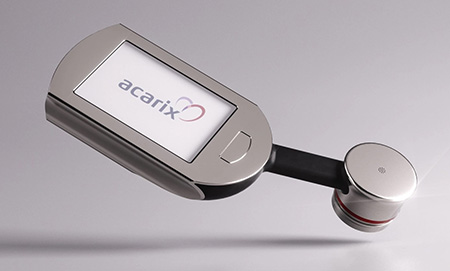
The trial will compare data from both departments using the CADScor System, an advanced acoustic-based diagnostic aid, as well as traditional stress tests used to rule-out CAD in patients with chest pain or shortness of breath. It is the first clinical study in the United States to collect real-world data from the CADScor System.
The new system, developed by Acarix, is a point-of-care diagnostic aid that uses highly sensitive acoustics and advanced computational processing to analyze a patient’s coronary blood flow. The system calculates a patient-specific CAD-score, and couples it with risk factors to rapidly indicate the risk of significant CAD.
“We are evaluating the CADScor System to see if it offers patients an alternative to the standard stress test,” explained Surabhi Madwhal Atreja, associate professor of cardiology and principal investigator. “This study may be foundational for rapid assessment of non-obstructive CAD, streamlining ER processes, and establishing an algorithm at UC Davis for the safe discharge of low-risk chest pain patients.”
Health care providers traditionally diagnose or rule out CAD by administering tests that include:
- An electrocardiogram (ECG or EKG)
- An echocardiogram
- An exercise stress test
- A heart (cardiac) CT scan
- A cardiac catheterization and angiogram
“Having the ability to re-classify patients into a lower risk group with a non-invasive, timely test will allow our patients to save time and avoid unnecessary additional tests and radiation hazards,” Atreja added.
This study may be foundational for rapid assessment of non-obstructive CAD, streamlining ER processes, and establishing an algorithm at UC Davis for the safe discharge of low-risk chest pain patients.” —Surabhi Madwhal Atreja
The clinical study will collect data from 200 patients at UC Davis Health being assessed for chest pain in both the emergency department and outpatient cardiology clinic. The study will assess the potential improvement in cost-effectiveness, time savings, and reduction in side effects by using the CADScor System to identify non-obstructive coronary artery disease in chest pain patients compared to traditional stress and imaging tests.
“We are excited to offer our patients this novel assessment,” said Reginald Low, clinical professor of cardiovascular medicine. “It not only underscores our commitment to advancing cardiovascular care, but our desire to transform health care through innovation and discovery.”

